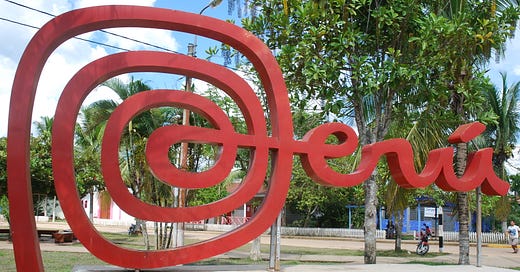The Forest Stewardship Council must respect the rights of indigenous people in 'isolation'
Recent violence in Peru's Amazon happened in a controversial logging concession that the FSC has backed for years

There is no other, less damning way of putting it. Despite claiming to “set the standard for responsible forestry worldwide”, the Forest Stewardship Council (FSC) gives the impression of totally failing to understand why it is so wrong for logging companies to operate in areas inhabited by indigenous people who live in “isolation” and have no regular contact with anyone else. Not only do such operations constitute a blatant incursion of their territories and the gross violation of their rights, as recognised by international law and instruments such as the United Nations’ Declaration on the Rights of Indigenous Peoples, but it exposes them to the potentially disastrous risks of contact, disease transmission and fatal epidemics.
This might not seem like the most important issue for the FSC, headquartered in Germany, given that it certifies over 200 million hectares globally and the vast majority of those areas are free from any such “isolated” indigenous people. But for certain small bands of men, women and children making their lives in some of the remotest parts of the Amazon, in Peru’s Madre de Dios region, this is a matter, quite literally, of life and death.
The reasons the FSC appears, at least publicly, to be so behind-the-times on this crucial human rights issue are two-fold. First is the fact that for years it has certified logging concessions in south-east Peru which include the territories of indigenous people in “isolation”, and which for two decades the Madre de Dios-based indigenous federation FENAMAD has been lobbying to become part of an off-limits reserve. Both Peru’s Culture Ministry and a state-run Multi-Sector Commission have also accepted that those areas are used by indigenous people in “isolation”, and therefore should become part of the reserve too. In fact, FENAMAD had recommended that the reserve should include those areas before it was established 20 years ago.
Second is the way that the FSC has responded to recent violence in one of those Madre de Dios concessions, run by Maderera Canales Tahuamanu (MCT), which I reported on last month and led to a logger being killed and another seriously wounded. After failing to reply to my initial questions and only agreeing that I could interview Director-General Kim Carstensen “potentially” after the FSC’s General Assembly beginning this Sunday 9 October, they sent me a statement saying that, among other things, they are “deeply moved and concerned about the recent tragic clashes between staff from the concession and members of the Mashco-Piro indigenous community living in isolation.”
Two immediate thoughts on that statement, which currently doesn’t appear on the FSC’s website. “We will assess whether our rules and the management of them need to be strengthened to better cater to these complex situations with peoples who have chosen to live in isolation”, the FSC states, but is that what is most immediately necessary? While specifically mentioning and including indigenous people in “isolation” in the rules and standards that it has already developed regarding all indigenous people might be a step forward, the FSC could simply ensure that it follows those rules and meets those standards in practice.
In other words, instead of saying you’ll do something new. . . just do what you already say you do.
For example, the third of the “10 FSC Principles” is upholding “the rights of Indigenous Peoples”, and last year the FSC issued guidelines about their right to free, prior and informed consent (FPIC) specifically, asserting that FSC-certified organisations must obtain FPIC from “affected rights holders.” But obviously that is not what is happening in south-east Peru: the “Mashco-Piro” have not given their consent to logging in their territories - not free, prior, informed or indeed any kind of consent - and nor should anyone even attempt to obtain it.
The FSC’s statement calls the situation in the MCT concession “complex”, but actually it’s very simple. No logger should operate in an area inhabited by indigenous people in “isolation”, and therefore no logger should ever be certified there. Nothing “complex” about that at all. If the FSC apparently continues to fail to comprehend this and take the necessary action, it could be contributing to a catastrophe.


